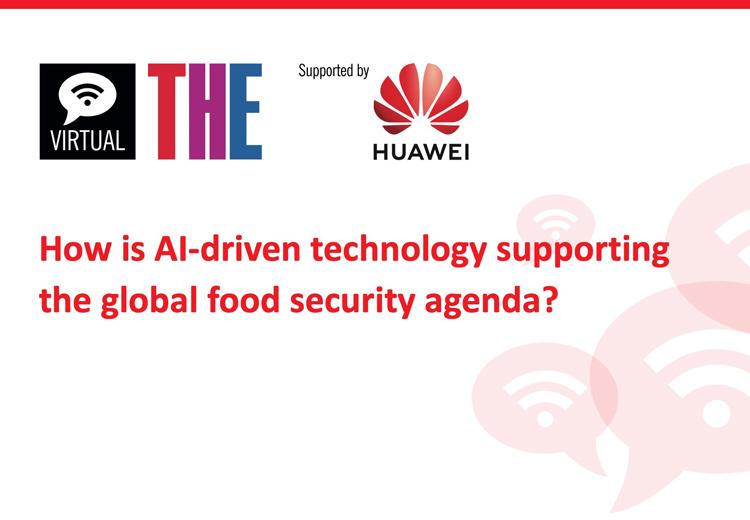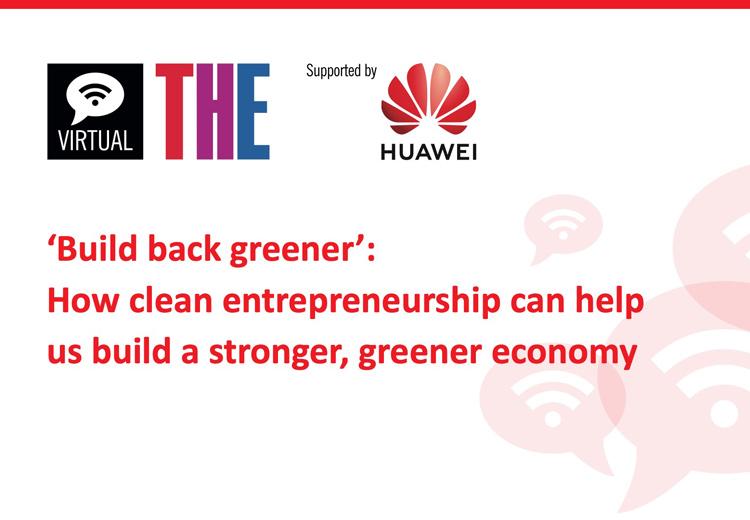Technological developments such as artificial intelligence (AI) and robotics can help ease global food issues. But systemic shifts are necessary for technology to offer meaningful change, agreed a panel at a Times Higher Education round table, held in partnership with Huawei.
Discussing the global food agenda, Benjamin Selwyn, professor of international relations and international development at the University of Sussex, said the issue was not production but distribution. “There’s more food in the world produced than is currently necessary,” he said, detailing the use of crops for biofuel and the damaging impact of animal feed.
The panel noted that almost half of agricultural products are wasted. Lisa Jack, professor of accounting at the University of Portsmouth, said universities can present a case for change. The food industry is characterised by creating more food and waste than needed, she said. “I’d like to show that you get better profits if you do less.” But in applying machine learning and AI to solve waste reduction, traceability and fraud, Jack said that harnessing the “fragmented and unstructured data” is a constant challenge.
In a cross-faculty collaboration, Jack’s accounting department participated in a project developing sensors. “While accounting might seem like a very different topic, it’s really just a series of processes with a series of checks, so the thinking and the logic is much the same,” she said. Jack also hopes for buy-in from the university’s psychology department for insight into the behavioural causes of poor traceability and fraud.
Technology’s scientific and human impact must also be considered, the panel agreed. Pandelis Kourtessis, associate dean of research at the University of Hertfordshire, suggested universities should use their influence in government or within research organisations.
However, UK government funding cuts have caused concern among the panel. Sai Gu, deputy pro vice-chancellor at the University of Warwick, said that the UK’s research capability for international collaboration and helping the global challenge agenda has been “dismantled”.
Fully replacing the funding by working with the private sector is “impossible”, Gu said, adding that ethical issues must be considered. “We don’t want these technologies to create a further monopoly by big international companies,” Gu said. Digital innovation should instead “decentralise the monopoly and allow local supply chains to reduce the dependency on big companies”.
Selywyn said universities must play a critical role in making sure a focus on technology isn’t used to ignore social, political and economic issues.
With an environmentally focused student base and sustainability embedded into all subjects at many universities, AI education is vital, said Patrick Holthaus, senior research fellow at the University of Hertfordshire. He suggested that this will improve AI’s public image and make students aware of what AI can and can’t achieve.
Panel members detailed their universities’ work with industry on innovations including farming crickets to replace traditional meat, using AI and robotics to harvest cucumbers, and improving biochar.
Gu said of emerging opportunities: “This is the scope where rapid development is coming, and universities are providing key roles to commercialise those new technologies.”
The panel:
- Yolanda Fernandez Diez, lecturer, agriculture and business management, Scotland’s Rural College (SRUC)
- Sai Gu, deputy pro vice-chancellor, University of Warwick
- Patrick Holthaus, senior research fellow, University of Hertfordshire
- Lisa Jack, professor of accounting, University of Portsmouth
- Pandelis Kourtessis, associate dean of research, University of Hertfordshire
- Alistair Lawrence, head of branded content, Times Higher Education (chair)
- Benjamin Selwyn, professor of international relations and international development, University of Sussex
Find out more about Huawei and higher education.


comment